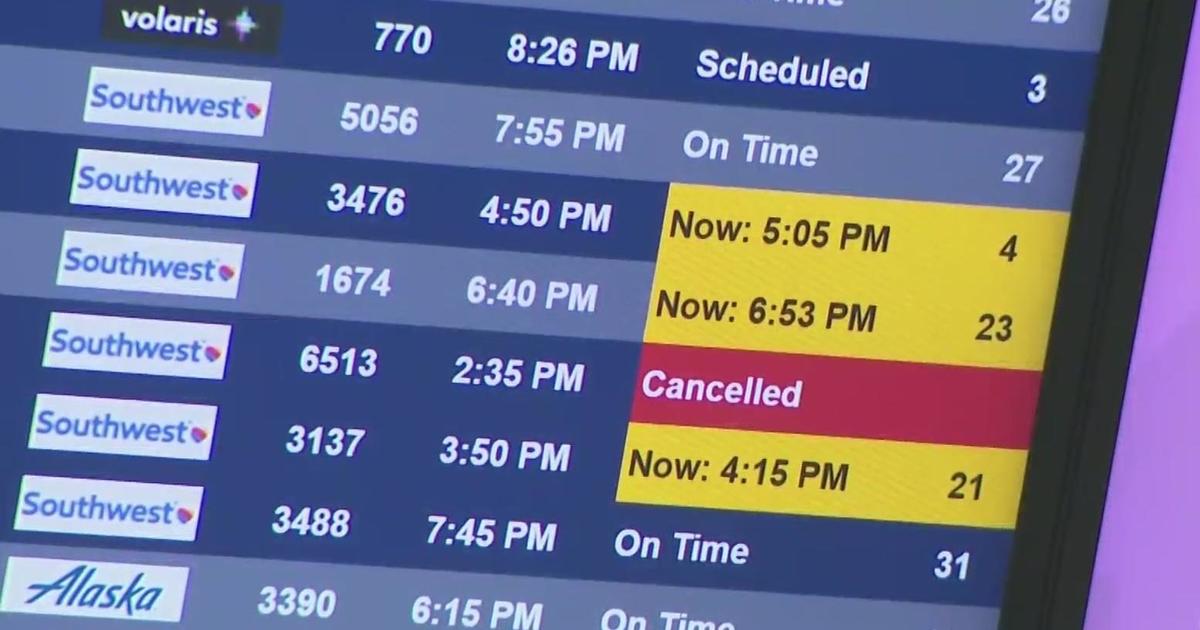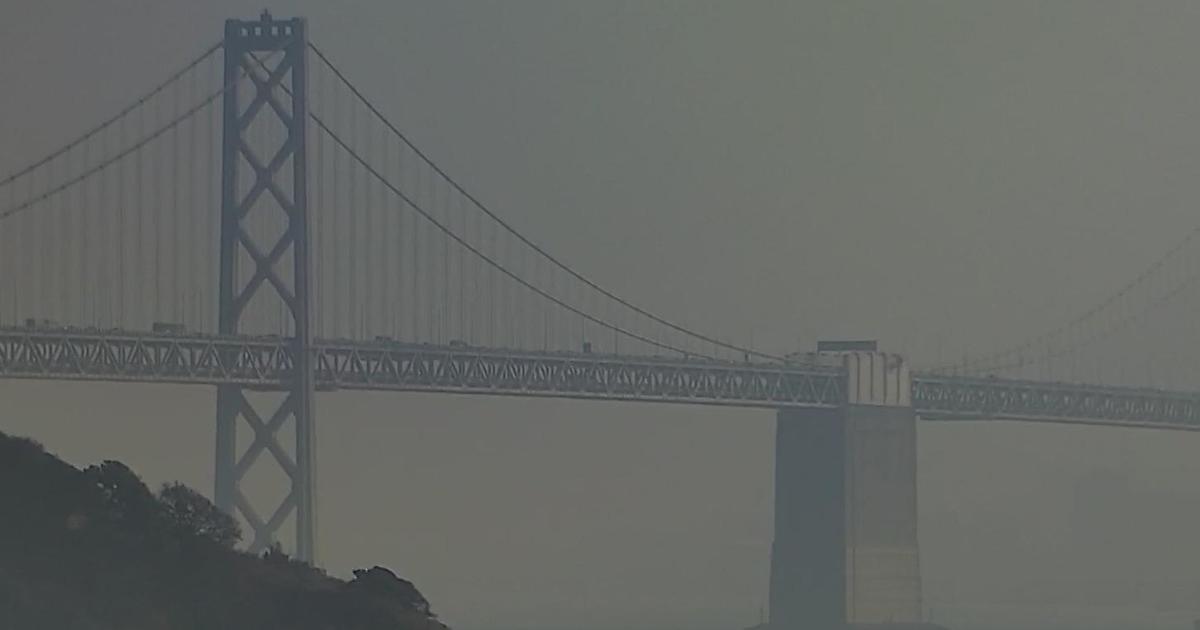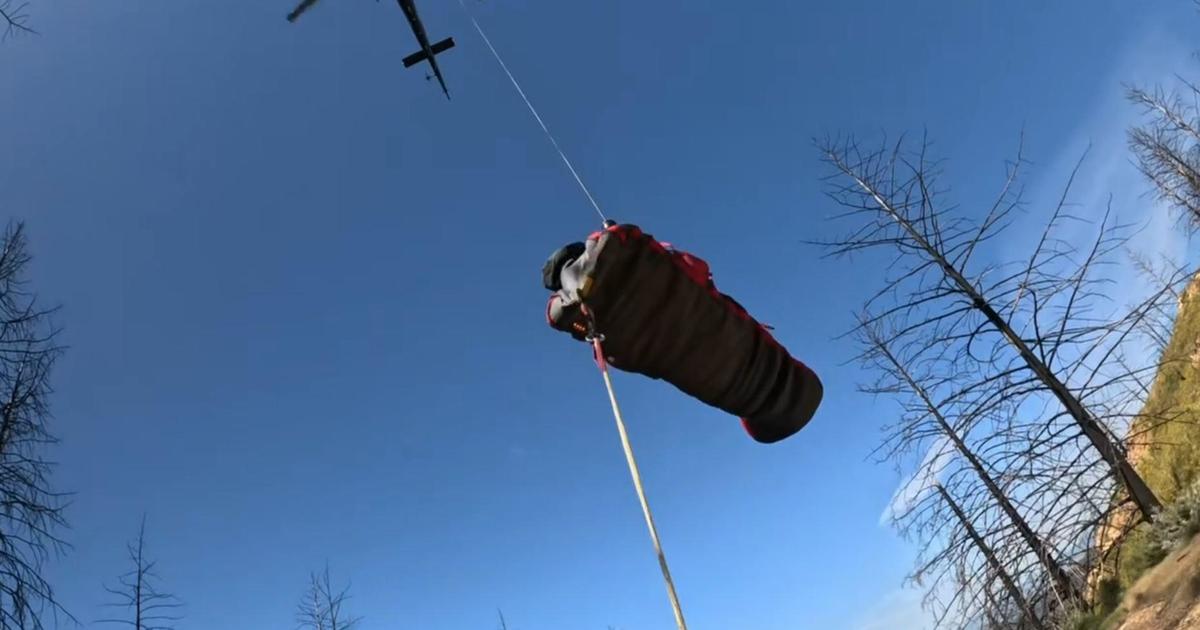California, Other States To Receive $3.7B For Public Transit
WASHINGTON (CBS SF/AP) — The feds are boosting funding to several states for their public transit systems with the goal of making them more environmentally-friendly and help win back riders after they were crushed by the COVID-19 pandemic.
The Biden administration said Monday it was awarding $2.2 billion in coronavirus relief money from the American Rescue Plan to 35 financially strapped transit agencies in 18 states. The money would be used to prop up day-to-day operations, including staffing and payroll as well as cleaning and sanitization to limit the spread of illness in public transportation. A federal mask mandate for public transit remains in effect until at least March 18.
Another $1.5 billion in grants will be made available under President Joe Biden's infrastructure law — a total of $7.5 billion over five years — for transit agencies to purchase low- or no-emission buses made by U.S. workers and to build bus facilities. That's more than double the combined amount from the previous year.
The cash infusion comes as mask requirements and other COVID-19 restrictions are fading in much of the U.S. With many workers beginning a return to offices, the administration sees an opportunity to promote zero-emission transit as families reestablish new commuting routes to work and school.
Transit agencies as well are seeking ways to boost ridership. Many, from Washington D.C. to Boston and Chicago, have slashed prices or offered free fares to attract suburban commuters and better serve lower-income communities more dependent on public transportation. Others are adjusting bus and subway routes to offer less service during traditional workday rush-hour periods in favor of more trips at other times of the day for people seeking medical care or traveling to sports and entertainment events.
"Our transportation sector has reached a turning point," said Vice President Kamala Harris, who has pushed the need for electric school buses and unveiled Monday's actions at the White House.
"We can clean our air and protect the health of our children," she said. "We can connect all of our communities with affordable, accessible and reliable public transportation. We can address the climate crisis and grow our economy at the same time."
Harris was joined by Transportation Secretary Pete Buttigieg and Environmental Protection Agency Administrator Michael Regan. They also announced proposed stronger pollution regulations for new tractor-trailer rigs that would clean up smoky diesel engines as well as $17 million in funding for school districts to buy electric zero-emission and low-emission school buses. The emissions can cause respiratory problems in humans.
Buttigieg said public transit is a key component to reducing air pollution, describing it as win-win because it is affordable for commuters and also reduces congestion on the roads. The administration has also been pushing electric vehicles to replace gas-powered cars. Transportation, mostly from car and truck tailpipe emissions, is the biggest U.S. contributor to global warming.
"We're making the largest ever investment in this program for buses and bus facilities, helping to deliver better commutes and cleaner air to American communities," Buttigieg said.
Transit agencies will have until May to apply for the Transportation Department's grants, which will be awarded by fall. About 5% of the money must also be used for workforce training to help transit workers prepare for the technological change.
Transit systems have already begun moving in the direction of electric buses. California has committed to all-electric bus fleets by 2040, as well as New York City and Boston. Washington, D.C., has set a target of 2045.
The effort comes at a challenging time for public transit.
Only about 55% of transit riders nationwide have returned compared with pre-pandemic times, according to the American Public Transportation Association. The biggest losses have been in commuter rail systems serving white-collar suburbanites traveling to downtown workplaces.
As COVID-19 cases decline, Biden has urged Americans to shed remote work, describing a return to offices as necessary to boost economic growth.
"It's time for America to get back to work and fill our great downtowns again with people," Biden said in his State of the Union address.
Among the recipients of COVID-19 relief funds Monday were big-city transit systems that had been hit hard from revenue losses due to decreased ridership. New York City's transit system, the nation's largest, garnered $769 million to steady its operations, while San Francisco's Bay Area Rapid Transit got $270 million to bolster service and safety protocols.
Others receiving grants were the Washington, D.C., metro system at $120 million as it anticipates a return of federal employees to offices and Houston's public transit at $137 million, which has significantly added rapid transit bus lines.
"These funds are crucial to avoid drastic service cuts and layoffs that would damage the economy and public health," said Nuria Fernandez, head of the Federal Transit Administration, which oversees the grants.
At the start of the pandemic, transit agencies cut payroll and slashed services. That came even as essential workers, who are disproportionately nonwhite and lower income, continued to rely on public transportation to get to work. But three rounds totaling nearly $70 billion in federal COVID-19 emergency assistance, including $30.5 billion that Biden signed into law last year, pulled transit agencies from the brink of financial collapse.
Paul P. Skoutelas, president of the American Public Transportation Association, praised the latest infusion of federal funds as vital to keeping workers connected to their offices. He said the money will allow transit systems "to re-evaluate routes and service plans, address equity issues and place more alternative fuels vehicles on the road to help address our global climate crisis."
© Copyright 2022 CBS Broadcasting Inc. All Rights Reserved. The Associated Press contributed to this report.



